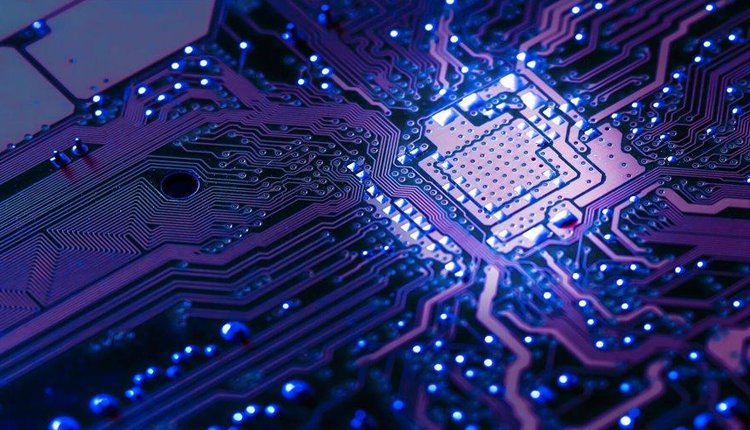The Basics of Electronic Technology : Definition, Skills, Career, and More
Techdigitalweb – Have you ever heard about electronic technology? If you are interested in designing, producing, and testing electrical and electronic parts, you should certainly look into this field. However, electronic or electrical technology is not as simple as it sounds.
Before you even think about applying for an electrical technology major, you might want to think about learning more about this field. And luckily for you, we are going to explain everything there is to know about this intriguing field. So, make sure you keep reading this article to find out more.
The Definition of Electronic Technology

What is electronic technology? Of course, you should figure out the definition of this field before you can learn anything more. To simplify, electrical technology is the application of scientific principles and theories in the production, design, testing, installation, use, control, and service of electronic and electrical parts, systems, and equipment.
One thing you should know about electronic or electrical technology is the fact that it is used in a variety of industries. These industries include residential, industrial, and even commercial industries. Essentially, electrical technology is the study of equipment, systems, technology, and machines that can produce electricity, which is why it is such a crucial field across many industries.
People with an electrical technology degree can pursue a couple of career paths. They usually work as a member of engineering teams, focusing their work on designing, producing, developing, installing, and maintaining electrical systems. However, they can also work in other areas, including customer support, sales, field engineering, and marketing.
What are the Duties of an Electrical Technologist?
Besides understanding the electronic technology definition, you should also know the common duties of an electrical technologist. People who work in this field usually perform a couple of duties that are in line with their studies. These duties usually include the following tasks:
- Diagnosing issues in electrical wiring
- Consulting electrical problems with customers
- Installing new electrical wiring systems
- Updating electrical systems
- Maintaining electrical circuit boards
- Using specialized equipment for electricity work
How is the Coursework in Electrical Technology?

If you somehow decide to pursue an electronic technology degree, you will be able to learn a lot of things during your study. Electrical technology students will usually learn more about electrical wiring, tools, system repairs, and parts. During your study, they will also teach you a couple of useful skills that you can utilize in this line of work.
The electrical technology program usually includes courses that allow you to develop many technical skills. These courses might include courses to install and upgrade electrical equipment and many more. In the courses, you will also learn how energy can transfer through wiring. On top of that, you will also learn more things, including energy production, commercial and residential wiring projects, safety regulations, and many more. That is why you will learn that electronic technology is quite a wide field.
How is the Higher Education in Electrical Technology?

Now that you know the coursework in electrical technology, let’s talk about the higher education that electrical technologists can pursue. You will rarely find schools that offer a master’s degree in this field. However, you will be able to pursue a master’s degree in another field if you are interested in pursuing higher education.
A master’s degree in electrical engineering will help you learn more about a couple of new things. These things include developing, installing, and maintaining more complex electrical systems. If you happen to pursue this master’s degree, you will be able to work as an electrician or change your career path to become an electrical engineer.
What are the Skills That You Will Learn in Electrical Technology?
Next, let’s talk about the skills that you will need to learn if you are interested in this field. You will need to learn these skills if you want to get an electronic technology certificate. Some of the skills that you need to master include:
- Mathematics. As an electrician, making precise measurements is very crucial. With the proper measurement techniques, you will be able to choose the best wiring and determine the proper angles for the wires.
- Technical skills. The second skill you need to master is the use of tools to help you perform your duties. Besides having to learn how to use the tools, you also need to be experienced in using them.
- Detail. One of the most important things you need to do is to pay great attention to details. This is especially true because this field requires safe wiring.
- Problem-solving. The last skill you need to improve is your problem-solving skill. An electrician will usually need to do a lot of repairs on broken wiring systems. And most often, you will have to be able to find the root of the problem while also trying to find a fix, which is not something you can easily learn.
What are the Career Paths in Electrical Technology?

If one day you decide to pursue a degree in electrical technology, you will be able to pursue a couple of different career paths. Here are a few electronic technology examples when it comes to career paths.
- Electrician. Professional electricians have a tole of installing and repairing electrical systems and wiring. They work with systems that can conduct electricity and make power. Aside from installing and repairing the systems, electricians also identify issues in electrical systems.
- Service technician. Service technicians will help customers when it comes to testing and maintaining electrical appliances. These appliances include common household appliances, including refrigerators and stoves.
- Electrical technician. Electrical technicians will conduct diagnostic tests on electrical systems to be able to find possible issues in those systems.
In conclusion, electronic or electrical technology is such a wide study that involves a lot of knowledge and skills. This major also helps students achieve different career paths such as the ones we have mentioned above. That is everything you need to know about electronic technology.

